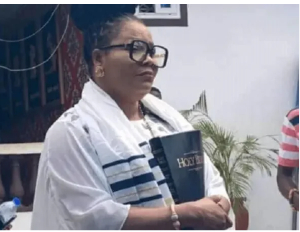A Deputy Minister of Finance-designate and the Member of Parliament (MP) for Obuasi West, Kwaku Kwarteng, told the Appointments Committee of Parliament which vetted him yesterday, that the bold decision taken by the Nana Akufo-Addo administration to limit borrowing on the domestic market, and also scrap obnoxious taxes, has already started yielding fruitful results.
According to him, since the Finance Minister presented this year’s budget statement to Parliament, where the policies of the government were clearly laid down, the interest rate, which was on the ascendency, has started coming down, with recent gains in the value of the cedi against the country’s major trading currencies, and that the government would no more crowd out the private sector from having access to capital to expand their businesses.Kwaku Kwarteng, Deputy Finance Minister Designate
Kwaku Kwarteng, who was subjected to a grueling inquisition by the Minority members on the committee, argued that excessive taxation, which the immediate-past National Democratic Congress (NDC) government resorted to, was not the best way to solve our economic problems.
According to him, despite the imposition of these high taxes on Ghanaians, unemployment was still on the ascendency, because individuals who have private businesses could not expand.
He argued that since 2011, when the economy grew by a record 14%, the country has been on the downward slope.
With this experience in mind, he said it would have been wrong for the New Patriotic Party (NPP) administration to also go on the same tangent – overtaxing the people and also borrowing excessively from the domestic market.
Kwaku Kwarteng also revealed that the effects of mismanagement of the economy in the past, especially, on the exchange rate, cost the nation dearly.
According to him, the Central Bank was, for instance, massaging the exchange rate to create the artificial impression that the local currency, the cedi, was stable, when the opposite was the case. At a point in time, he said, whereas the Bank of Ghana administratively set the exchange rate as GH¢3 to $1, the banks were quoting GH¢4 to $1.
“Since 11th July 2014, the Bank of Ghana has been publishing interbank foreign exchange rates that deviate drastically from the official rates quoted by Ghanaian banks and rates prevailing in the Ghanaian currency market.
“Consequently, per the Bank of Ghana figures, the Cedi has remained quite stable in the last three months, while it has depreciated significantly in Ghana’s foreign exchange market,” he was quoted as saying in 2015.
Kwarteng stood by this statement, and revealed that most of debts in the petroleum sector occurred, because the National Petroleum Authority (NPA) was relying on administrative figures set by the BoG to do its calculations.
He, again, told the committee, in answer to a question, that the fact that he criticised the BoG and Ghana Statistical Service (GSS) did not mean that he cannot work with them, when he is given the nod to become a Deputy Minister for Finance.
The Obuasi West MP contended that his criticism of the two state institutions helped to shape their policies.
According to him, the International Monetary Fund (IMF) even questioned the government on some of the issues he raised with the BoG during their negotiations.
Touching on the alleged GH¢7 billion that went ‘missing’ from government coffers, as revealed by Vice President Bawumia, Kwaku Kwarteng noted that the figure could even go higher than what the Vice President mentioned, if the ongoing auditing was completed.
Dr Bawumiah, at a forum in Accra this year, stated: “In preparing for this year’s budget, for example, we have been very surprised by the fiscal data, the data on our expenditure and our revenue. As we interrogated the data, we realised, to our shock, that expenditure amounting to 7 billion cedis was made by the previous government, but never disclosed. These come from 2014, 2015 and 2016, so where have they been hiding all these years?
“How are you supposed to manage an economy with faulty data? And so, we have to emphasise that getting the data right is really very key, because it throws the entire budget into disarray, because you are going into 2017, and suddenly, you are told by the way that there is 7 billion you have to pay next year that you did not anticipate. This is the reality.”
The Minority Leader, Haruna Iddrisu, after referencing this statement from the Vice President, drew Mr Kwarteng’s attention to the fact that GH¢5 billion was quoted in the 2017 budget, and not the GH¢7 billion.
He, therefore, wanted to know whether the disputed money was missing, as earlier reported, and between the GH¢7 billion and GH¢5 billion, which one should Ghanaians believe.
The deputy Minister-designate pointed out that though the money was not missing, it was not captured in the Ghana Integrated Financial Management Information System (GIFMIS) platform.
He assured Haruna Iddrisu that ongoing auditing would expose more of such expenditures outside the GIFMIS platform, and that what Dr Bawumaih said, was the gospel truth.
Kwaku Kwarteng also explained that GH¢5 billion quoted in the 2017 budget represents expenditure claims.
Business News of Thursday, 30 March 2017
Source: The Chronicle













